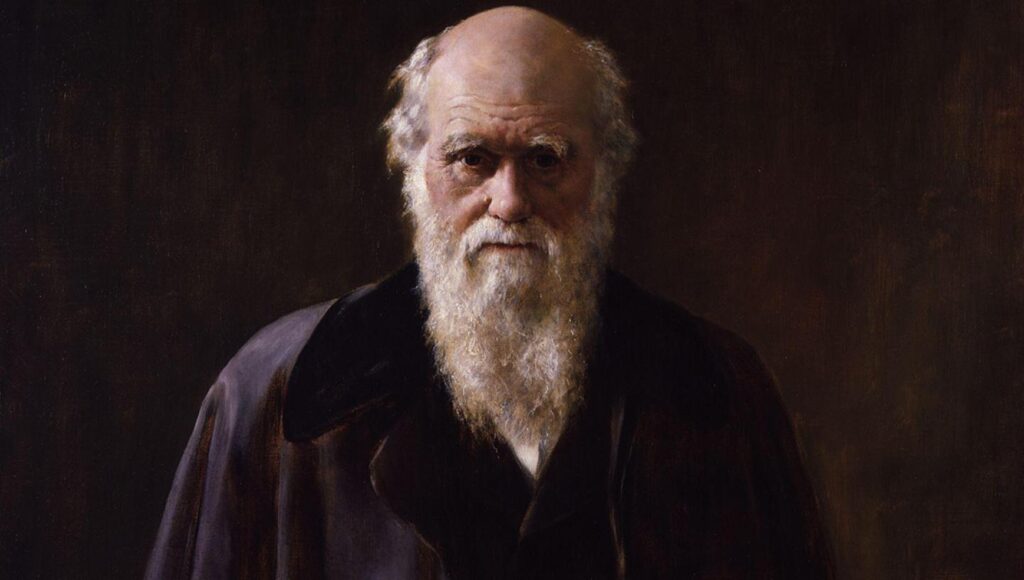On April 19, 1882, Darwin passed away in Downe, Kent.He was born on February 12th, 1809 in Shrewsbury, Shropshire, England. The most distinguished honor given to a British citizen was Darwin’sDarwin, a jovial country gentleman, first outraged Victorian society’s established religion by speculating that humans and animals had a shared ancestry.

Early life
Darwin was the second child of Robert Waring Darwin, a society physician, and Susannah Wedgwood, a maker of Unitarian pottery. Erasmus Darwin, Darwin’s other grandfather and a freethinking physician and poet who was well-liked prior to the French Revolution, wrote Zoonomia, or the Laws of Organic Life. After his mother passed away when he was eight years old, Darwin was raised by his three older sisters. The young boy was in awe of his oppressive father, whose keen medical observations had taught him much about human psychology. He went to Shrewsbury School, which is a traditional Anglican school. But he detested the repetitive instruction in Classics there from 1818 to 1825. Because science was then considered to be dehumanizing in English public schools, Darwin’s headmaster chastised him for dabbling in chemistry, and his classmates gave him the nickname “Gas.”.
Beagle Expedition led
The world tour completed by the 22-year-old Darwin would become a defining moment in his career. Darwin was to develop a new sense of seriousness as a result of five years of physical labor and mental toil while confined on a ship, which were balanced out by numerous opportunities in the Brazilian jungles and the Andes Mountains. He could explore his interests as a gentleman naturalist for a considerable amount of time outside the ship. As a result, he spent only 18 months of the voyage on board the ship.
The immediate hardship was a crippling case of seasickness. And so was his musing: on calm days, Darwin’s plankton-filled townet left him wondering why beautiful animals abound in the depths of the ocean, where no man could appreciate them. Lyell’s geologic theories that the land was rising and falling in different places were confirmed when sailors on the Cape Verde Islands in January 1832 noticed bands of oyster shells slicing through the local rocks. Darwin’s mind was left in “a chaos of delight” by the lushness of the rainforest in Salvador de Bahia (currently Salvador), Brazil. But the Wedgwood-abolitionist characteristics of the local slavery revolted that mind. Darwin, who was so frequently by himself, believed that the tropical forests compensated for human wrongs. The collector “became red-hot with Spiders” during the months he spent in Rio de Janeiro surrounded by the “gaily-colored” flatworms and other tropical splendor. He would later weigh this evidence against the good nature’s design.
The years of London(1836–1842)
After finishing his journey and receiving his father’s £400 stipend, Darwin settled down among the urban gentry as a gentleman geologist. He befriended Lyell and discussed the expanding Chilean coastline when he became a new fellow of the Geological Society in January 1837 and later the organization’s secretary in 1838. By publishing his journal, Journal of Researches into the Geology and Natural History of the Different Countries Visited by H. The popularity of Darwin skyrocketed. M. S. Beagle, in 1839. In order to publish their descriptions of his specimens in his Zoology of the Voyage of H, he hired the best specialists and used a £1,000 Treasury grant that Through the Cambridge network, he was able to acquire. M. S. Beagle (1838–1943). Darwin was now admired in London as a result of his increasing fame.
Squire of Downe
In an 1844 letter to Emma, he requested that in the event of his demise, she pay an editor £400 so that the work could be published. Perhaps his intention was to die first. As he started to distance himself from society in 1842, Darwin moved the family to the isolated village of Downe in the English county of Kent. In reality, it was only a 16-mile (26-kilometer) drive to central London. He moved to Down House, a former parsonage, imitating the lifestyle of his clerical friends. He was so concerned about nosy neighbors that he even lowered the road in front of his house. His days now ran like clockwork, with times set aside for reading, taking naps, going for walks, and playing backgammon every night. His days were now truly his alone. He eventually helped to run the local workers’ clothing and coal club after finishing his parish duties. His research on bees, flowers, and barnacles, as well as his three books on South American geology and coral reefs, all of which were published between 1842 and 1846, all helped to establish his reputation. as a geologist for a living.
Origin of Species
England enjoyed peace and prosperity in the 1850s. By the middle of the decade, the professionals had taken over, created a meritocracy, implemented exams, and run the government. Because of the changing social makeup of science—best illustrated by the ascent of the independent-minded biologist Thomas Henry Huxley—Darwin was expected to receive a more positive response.
Related Posts
Donald Trump – Best Guide in 2023
